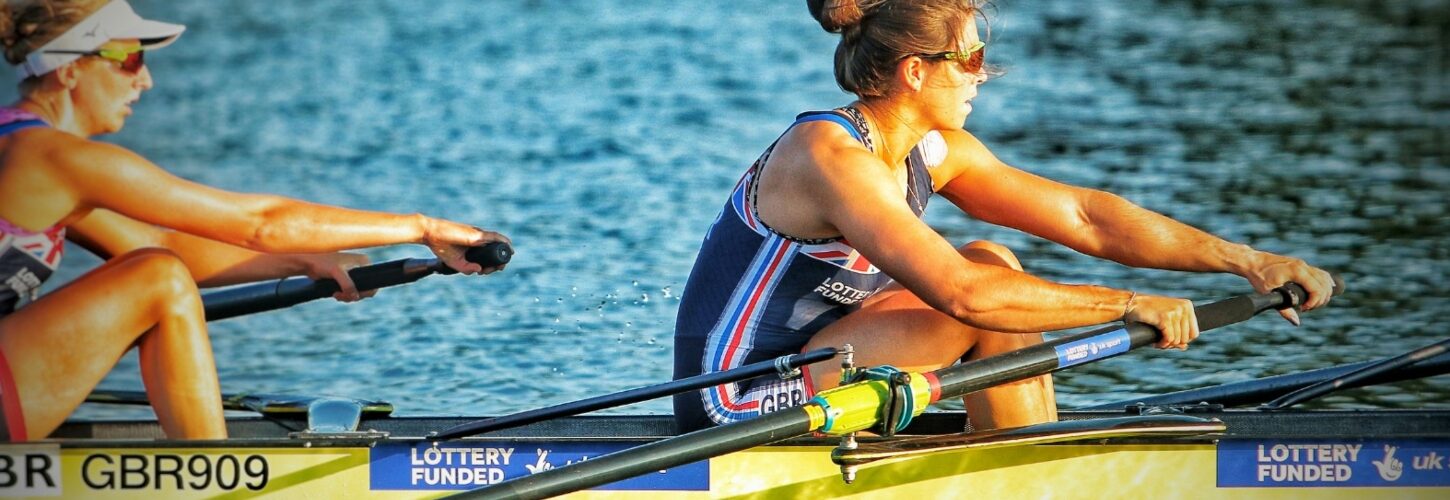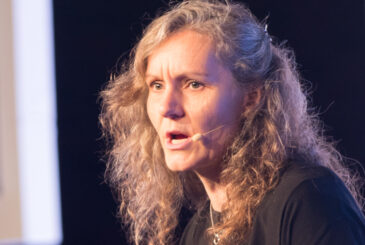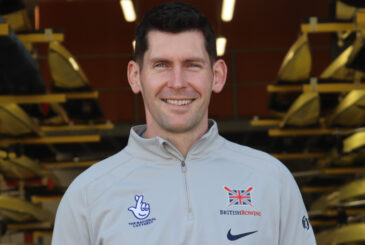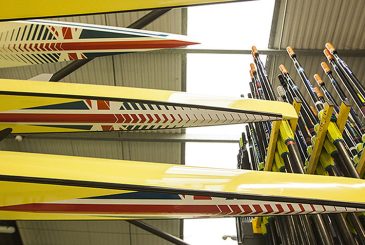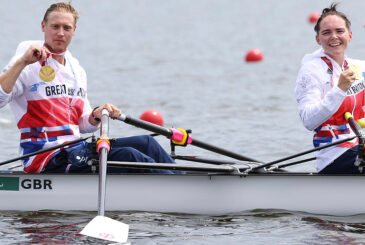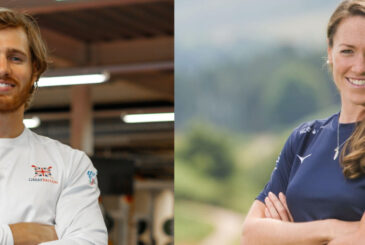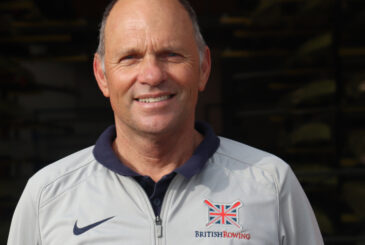Recovering from injury? GB rower Beccy Muzerie has been there too. She shares the lessons that she’s learned along the way
I stepped into the GB Rowing Team with the naive idea that now I was a funded athlete who could train daily without the pressures of work and study, my ergs would consistently get faster, my body would get stronger and stronger, and I would see daily progress towards becoming a world class rower. I was deluded.
Reality hit home just three days in when I was diagnosed with an injury that kept me out of the boat for a number of weeks. And I have been through various periods of illness and injury since.
If I have learnt anything it is that illness and injury are to be expected. We spend our days pushing our bodies to their limits – it is not surprising that sometimes we end up on the wrong side of the line. What matters is how we respond when it happens, and what we learn to try and prevent it happening again.
My first major injury came from doing circuits when I was training with the Welsh development squad. I misjudged the height of a box jump and came away with a torn ACL. Two surgeries and six months of rehab later I was back in a boat, but not in time for that season’s racing.
“I can remember the day that I was able to clean my teeth again without needing to support myself when bending over the sink”
Recovery was a lonely journey, with many hours training alone whilst the rest of the squad travelled to races all over the country. But I learnt two key lessons that still have an impact on me today. The first was that I wanted to row for me – because I loved being on the water – and not because it was what my friends were doing or because someone was telling me that I was good at it. The second was how to self-motivate.
I did many ergs alone in the first-floor gym at the Welsh Institute of Sport, noting my scores in my training diary and trying to get just a tiny bit better each day as I had no other frame of reference. This skill stays with me today; staying competitive with myself and knowing tiny daily changes make a big long-term difference.
It can be easy to overlook how exhausting recovering from illness or injury can be. I am not talking about the actual energy that is going into our bodies as they repair themselves, or the rehab exercises that we are doing; I am referring to the additional mental energy that is needed.
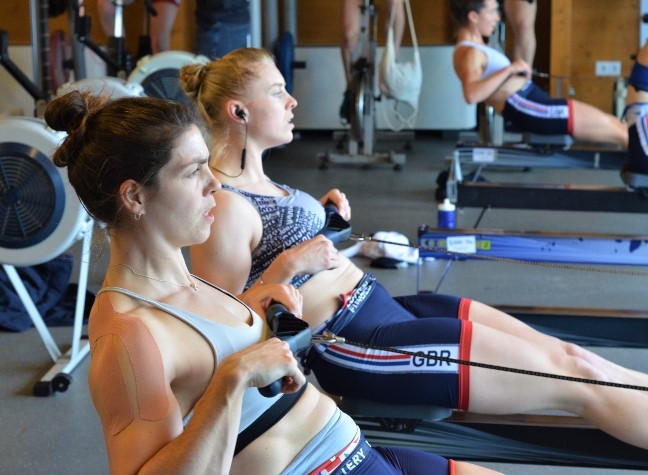
The constant need to assess how you are feeling, what symptoms you still have, whether that is better or worse than yesterday, whether this exercise is helping or hindering, whether you might be able to return to full training tomorrow. And underneath the surface feeling guilty for letting teammates down, angry that you can’t be participating, left out from the rest of the group, worried about what missing training might mean. All made worse by the fact that your body is missing the daily endorphin hit from a hard day’s training, so emotions are running even higher. I know. I have been there.
Over the last few years, I have struggled on and off with back injuries. I can remember the day that I was able to clean my teeth again without needing to support myself when bending over the sink – it felt like a huge milestone which might seem ridiculous in the context of it being Olympic year. And I was able to share this with people close to me who understood that this represented a mini victory in the context of my rehabilitation journey.
“When the team went on camp without me last year, having a WhatsApp group with a few friends to discuss training was invaluable”
The ability to move the goalposts and track overall progress rather than getting bogged down with the daily ebb and flow of how I feel is a key part of successful rehabilitation.
Rehab is often two steps forward, one step back, so seeing the bigger picture is important. As is recognising the mental strain I described above; talking to someone about it and letting yourself off the hook, working out what gives your brain a rest as well as your body. It is these strategies that have got me from struggling to walk to the brink of Olympic selection in five months.
I know I have found the journey of recovery to full fitness easiest when I have shared it. I can remember many changing room celebrations when teammates have rowed for the first time in months again – or completed their first 16km erg back after injury.
When the team went on camp without me last year, having a WhatsApp group with a few friends to discuss training was invaluable. It gave me space to discuss my plan for my sessions, they could challenge me when to push on and when to hold back and not expect too much of myself. They made me feel like I still had a team even though I was alone in the gym.
And when rehab is over and you are racing successfully again, it is these people who stood beside you when it was hard that you want to celebrate with.
It is not a straight line to success. Elite sport is a roller coaster of illness, injury and setbacks no matter how hard we try. But it is the lows that make the highs worth the ride.
Photos: Beccy Muzerie


